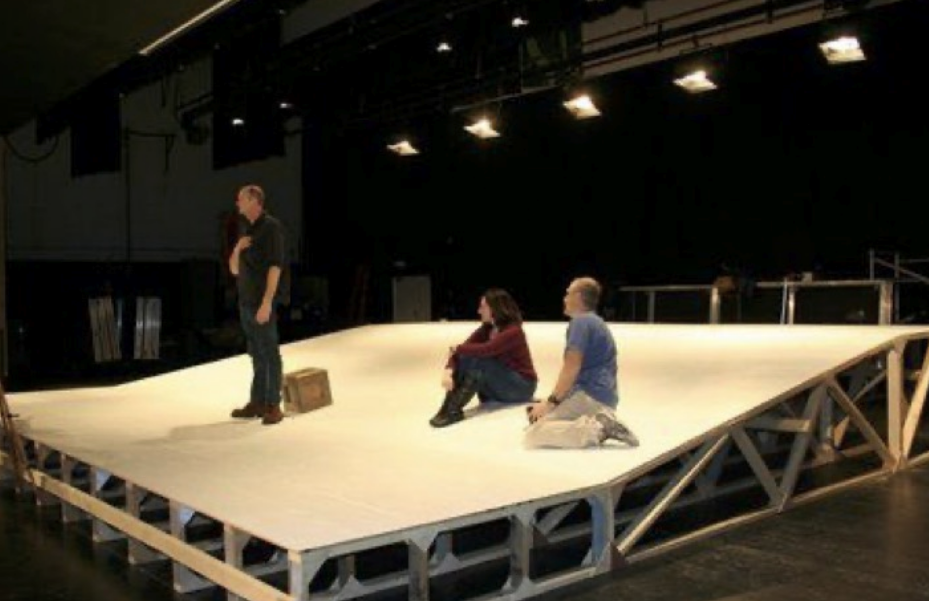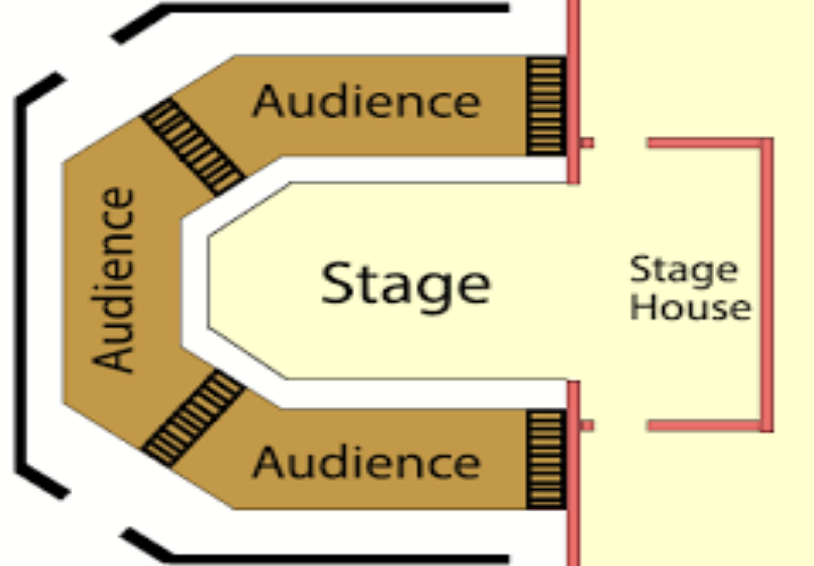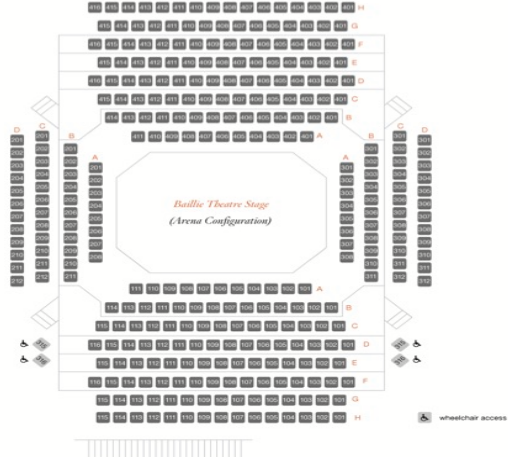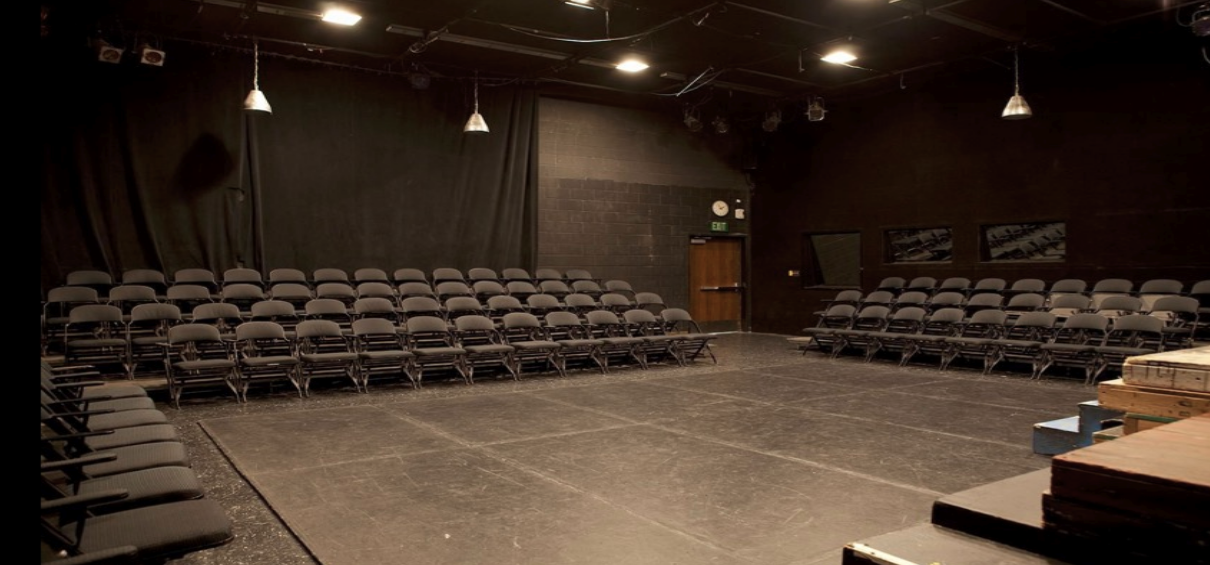Stage and theatre terms
1/33
There's no tags or description
Looks like no tags are added yet.
Name | Mastery | Learn | Test | Matching | Spaced |
|---|
No study sessions yet.
34 Terms
Stage
The area where the players perform; usually a raised platform
Greek Amphitheater
- Held up to 15,000 people
- Built into hills for optimal volume of the actors & vision lines
Vomitorium
A passage situated below or behind a tier of seats in an amphitheatre or a stadium, where big crowds can exit rapidly (”vomit out of”) at the end of a performance. They can also be pathways for actors to enter and leave the stage.
Lobby
A room in a theatre used for public entry to the building from the outside. Ticket counters, concessions and restrooms are all usually located here.
Box office
Where tickets are sold to the public.
House
This term refers to any area which is not considered playing space or backstage area. This includes the lobby, coat check, ticketing counters, and restrooms.
- More specifically, this term refers to any area in the theatre where the audience is seated. This can also include aisles, the orchestra pit, control booth and balcony.
Wings
[Stage left and stage right] Areas that are part of a stage but offstage (out of sight of the audience). They’re typically separated using drapes (usually black). It is used for performers preparing to enter, storage of sets for slow changes, as a stagehand work area, and as a way to hide equipment such as lights.
Dressing room
Rooms where cast members apply wigs, make-up and change into costumes.
Green room
The lounge backstage. This is the room where actors and other performers wait in when they are not needed onstage or in their dressing rooms.
Fly rail
A system of ropes, counterweights, pulleys, and other such tools designed to allow a technical crew to quickly move set pieces, and lights on and off stage quickly by 'flying' them in from a large opening above the stage known as a fly tower/flyspace
Scene shop
Dedicated areas where each element of the scene is constructed and prepared for each production.
Tech booth
The section of the theatre designated for the operation of technical equipment, followspots, lighting and sound boards, and is sometimes the location of the stage manager's station.
Cat walk
An elevated platform from which many of the technical functions of a theatre, such as lighting and sound, may be manipulated.
Proscenium
The portal that divides the audience from the stage. he audience directly faces the playing area which is separated by a portal called the _____ arch. The stage is often raised a few feet higher than the first rows of the audience.
Down stage
The area of the stage closest to the audience.
Center stage
The middle of the playing area
Stage left
The area of the stage to the performer's left, when facing downstage
Stage right
The area of the stage to the performer's right, when facing downstage (i.e. the audience).
Upstage
The area of the stage furthest from the audience.
Orchestra
In productions where live music is required is positioned in front and below of the stage in a pit.
Apron
Part of the stage between the curtain and the orchestra
Rake
An angled stage.

Proscenium theatre

Thrust
The stage thrusts out and the audience surrounds from three sides.

Arena
Audience surrounds from all four sides.

Black box
Key feature: Chairs are adjustable and can be put in any arrangement

Scrim
A drape that appears opaque when lit from the front and colored when lit from behind; commonly used as a screen or backdrop, or used to hide things behind stage until it’s time to present them.
Backdrop
A painted piece of scenery used to help create the environment of the play. It’s used to help the audience understand the setting, and can be used as a space for actors to change costumes and move props.
Border
Hung overhead, may be painted for effect to complement the backdrop. Used as masking to hide hanging stage equipment.
Leg
A visual extension of the backdrop, also used for masking the wings.
Cyclorama
Traditionally a backdrop placed upstage wide enough to wrap around and come down stage to the audience.
Hard goods/soft goods
Wooden or fabric goods respectively.
Groundrow
A piece of scenery sitting on the floor upstage, which hides the bottom of a skydrop, cyc, or drop and creates the sense of a horizon with the sky beyond.